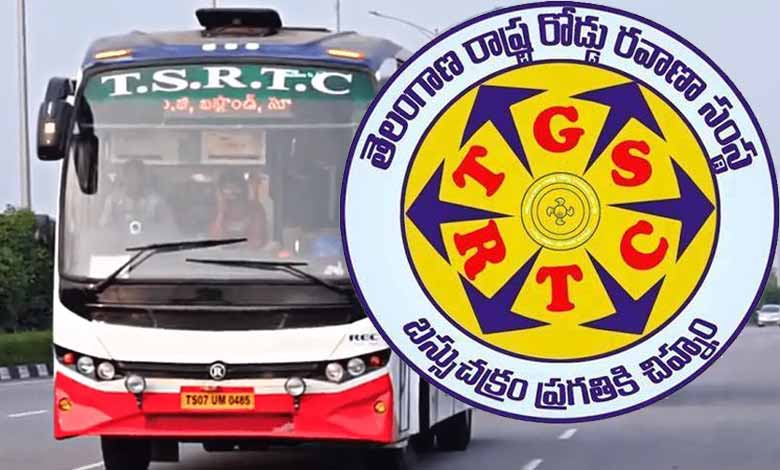Hyderabad Commuters to Pay Higher Bus Fares from October 6 as TGSRTC Revises Rates
Hyderabad and Secunderabad will have to spend more on city bus travel, as the Telangana State Road Transport Corporation (TGSRTC) has revised fares across multiple services.

Hyderabad: Starting Monday, October 6, passengers in Hyderabad and Secunderabad will have to spend more on city bus travel, as the Telangana State Road Transport Corporation (TGSRTC) has revised fares across multiple services. The hike, ranging between ₹5 and ₹10, is expected to affect lakhs of daily commuters.
Under the revised structure, City Ordinary, Metro Express, E-Ordinary, and E-Express buses will charge an additional ₹5 for the first three stages, while journeys beyond the fourth stage will see an extra ₹10 added to the fare. Metro Deluxe and E-Metro AC services will also undergo a similar revision, with ₹5 added for the first stage and ₹10 for subsequent stages.
Also Read: Madannapet Police Crack 7-Year-Old Girl’s Murder, Uncle and Aunt Nabbed
This means that passengers who previously paid ₹10 for up to three stops will now pay ₹15. Similarly, for distances beyond the fourth stop, the minimum fare is expected to rise to around ₹20.
Officials explained that the fare adjustment is not merely a revenue-generating measure but part of a broader plan to modernize Hyderabad’s public transport network. The government has set a target to replace diesel buses with 2,800 electric buses by 2027, aiming to reduce pollution and ease traffic congestion while moving towards a more sustainable transport system.
Currently, 265 electric buses are already operating from six depots in Greater Hyderabad, with another 275 expected to join the fleet this year. To support this transition, TGSRTC is preparing charging infrastructure at 19 depots and constructing 10 new depots and charging stations, with an estimated investment of ₹392 crore.
Authorities have urged commuters to view the fare increase as a contribution towards building a cleaner and healthier Hyderabad, emphasizing that the move aligns with the city’s long-term vision of eco-friendly urban mobility.
